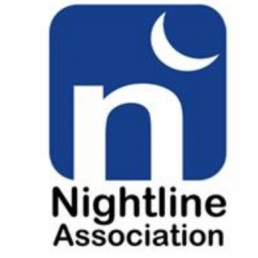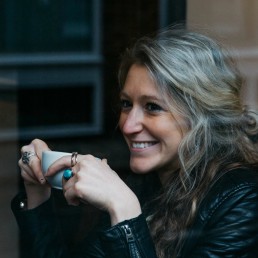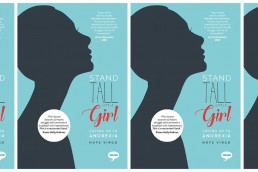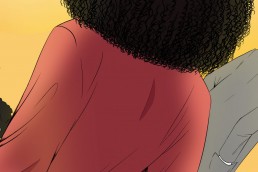Words by Nightline Association
Photography by Steve Johnson, via Unsplash
Content Warning: mentions of disordered eating
Q. We are absolutely delighted that you are able to talk to us today and that you have a passion for sharing your experience of eating disorders with others. We understand that eating disorders can be devastating and that recalling that time in your life may be a very emotional and potentially painful experience for you. Did you find sharing your very personal story difficult at first? And what made you determined to reach out to others even despite those difficulties?
A. Sharing my story has at times been hard, there have been some talks I have delivered where I have left the session and found it emotionally exhausting. Reliving trauma and the impact anorexia had on my life can be tricky but over the last year I have learnt how to manage this in a healthier way. I know have clear boundaries in place, I have people around me who I can download with afterwards and I always try and write up a talk and how it made me feel. For me I absolutely love being able to share my story with so many people which makes it easier to cope with sharing so personally. I love all the messages I get telling me how grateful people have been and when I deliver sessions and people feel so able to open up with me.
I relapsed with my anorexia in 2016 and after coming through this I realised I wanted to share my story for three main reasons: 1) I wanted to change understanding around eating disorders making sure people know that you can be any size and shape and struggle. When I relapsed I wasn’t able to access any services because my BMI wasn’t low enough. By sharing my story, I have managed to challenge these stereotypes and work with the Government to make changes to this. 2) So individuals know they are not alone – I know what it is like to feel completely isolated and alone and I want to go some way in helping individuals realise that they don’t have to feel that way. 3) To paint a really honest picture of recovery, the ups and downs, the challenges … everything! I want everyone to know that even though recovery is hard work, fighting that manipulative anorexic voice in your head can be so hard at times, sticking with the fight is totally one hundred percent worth it.
Q. At Nightline, we offer students a non-judgemental space to be listened to, in light of the stigma that can often surround mental health issues. What do you feel are the misconceptions surrounding eating disorders that might stop people from speaking out? Nightline services are completely confidential and anonymous. Do you think that offering this kind of support is particularly beneficial to those who may find it difficult to speak to their family and friends about their struggles?
A. Therapy and support for people comes in so many ways and as individuals we need to find what works for us. Sometimes it can be so hard to open up to those closest to you. I hid my anorexia for four years before anyone realised anything was the matter, I then spent a year in hospital and since then I am certainly more open but for so long there were things linked to my recovery that I found really difficult to share. I used to get embarrassed that I couldn’t eat triangle sandwiches or had a voice in my head that would be so nasty to me. Now I am lucky in one sense as I do feel able to open up to people around me but I think we need to have services like Nightline for those who either don’t feel able to open up to those around them or those who choose to want to remind anonymous.
Q. We often talk about the drivers behind students calling our services as being if not student-specific, exacerbated by the student experience, and we were wondering if you had any thoughts on how the student experience could exacerbate eating disorders?
A. For people with eating disorders reaching out for help can be so hard mainly because you can’t see yourself the way others see you. For me I was in this complete denial phase for so long. You think that people won’t take you seriously and the scary thing is, if they don’t then you feel so guilty for trying to reach out for support. There is this huge misunderstanding that to have an eating disorder you need to be stick thin and this is costing lives.
Eating at university can at times be hard too, particularly if you are at a sports driven Uni or you have friends who are always trying out different diets because you can then convince yourself it is normal. Then once again you don’t feel able to reach out for that support when you really need it. This is something that bothers me a lot, we need to, as individuals be mindful of those around us and realise that diet conversations, discussing calories can be really triggering for people with eating disorders. We need to stop constantly discussing things like this!
The lack of routine at university can seem like a total minefield to people with eating disorders. I know for me, getting discharged from hospital where there was a set routine and then going to University was hard work. I had to accept that dinner wasn’t always going to be at 6pm and I couldn’t always fit my snacks in at exactly the same time. For me it helped me push my boundaries in recovery but this can be really scary and really hard for people. It is about learning what works for you and how we can readjust ourselves to different situations. A good combination of routine but pushing ourselves throughout our recovery.
Q. In your book, you really explain how all-consuming your relationship with your eating-disorder became. If you were to be able to speak to your younger self now, what would you want them to know?
A. You think anorexia can give you everything you need, that the value it gives you will last forever, but the reality is it won’t. You won’t ever been that happy listening to that voice in your head letting it dictate your every more. Find those around you that you can trust, that you feel able to open up to. They are worth more than the anorexia and will be able to give you everything you need.
Anorexia really is a manipulative bitch and not your best friend whatever it tells you!
Q. Looking into the future, where would you like to see the conversation around eating disorders be in five years’ time, and how can we make that happen?
A. I would like a complete change in attitude towards eating disorders. For people to not assume that to have an eating disorder you have to be stick thin, for people with eating disorders to be able to access support even if their BMI is not really low. We need to be focusing on early intervention and prevention making sure that GPs are educated in the right way when it comes to eating disorders.
“We need to be focusing on early intervention and prevention making sure that GPs are educated in the right way when it comes to eating disorders.”
At the moment thousands of people with eating disorders are being turned away from treatment and support every day because their BMI is not underweight enough. The NICE Guidelines for access to treatment are correct but they are not being implemented in the right way. There is a lack of understanding around eating disorders and diagnosis (and a lack of funding being put in the right place to get individuals the right support.) This issue is costing lives, heartbreak, anguish for people with eating disorders and their families, and ultimately costing the NHS more due to increased need when someone hits crisis. The solution to tackle this is simple and achievable. My Dump the Scales campaign is calling for adequate GP training around eating disorders, full implementation of the NICE guidelines through communications and a commitment to bring in a standard to measure and report on this.
Secondly I would like society to start tackling the diet and calorie chat. It is triggering and just plain right boring! We need to start speaking up when we hear diet chat, be mindful of talking about calories and start rebelling against the constant messaging that we have to lose weight and if we do we will be happy…!
—
Last year, Emily Holmes reviewed Hope Virgo’s book Stand Tall Little Girl for Fearlessly. You can read it here.
If you have been affected by the issues raised in this piece you can visit niteline.ac.uk for support.
Nightline Association
Supporting, promoting and developing Nightlines.
Hope Virgo
Hope Virgo is the author of Stand Tall Little Girl and a leading advocate for people with eating disorders. Hope helps employers such as schools, hospitals and businesses deal with the rising tide of mental health issues. She is also a recognised media spokesperson having appeared on various shows including BBC Newsnight, Good Morning Britain, Sky News and BBC News.








